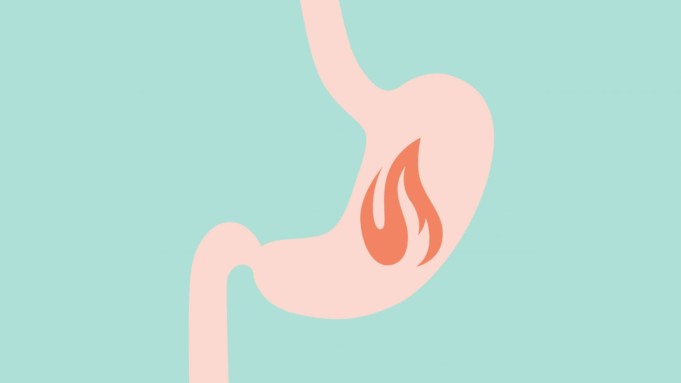Pregnancy is the time that most women look forward to. It is also that period where most hormones are raging, your body is changing, and it feels like you don’t know what is going on in your body anymore. Well, we get that and guess what you are not alone.
All pregnant women experience common signs such as swollen legs, morning sickness, irritability, swollen breasts, heartburn, just to mention a few. These are mostly the symptoms that women experience, especially during their first or second trimester. But for the sake of this article, we will focus on only one symptom, and that is heartburn.
It is quite common for pregnant women to experience heartburn. According to research, more than half of the pregnant women in the United States of America(U.S.A) have listed severe heartburn as one of the complaints and symptoms they experience during either their first or second trimester.
According to a recent study, almost 45% of pregnant women often experience heartburn during pregnancy. The tendency for women to experience heartburn during pregnancy is increased if they normally experience heartburn before they became pregnant.
Heartburn, which is also known as acid indigestion or Gastroesophageal Reflux Disease(GERD) is a condition that is caused as a result of the irritation or burning sensation, usually felt in the esophagus.
This burning sensation is due to the reflux or regurgitation(return) of the stomach contents from the stomach back into the esophagus(a hollow tube that connects your throat to your stomach).
So if it isn’t spicy foods or the burrito you ate last night that is causing you to experience heartburn during pregnancy, then what is causing it?
Causes of Heartburn during pregnancy

Heartburns can occur at any stage of your pregnancy, but you may often experience it during your second or third trimester. According to experts, the exact cause of gastroesophageal reflux disease (aka heartburn) during pregnancy isn’t known.
However, they suspect three main factors to contribute to it, and they are:
1. Hormones
When you become pregnant, there are two main hormones that start functioning in your body. They are progesterone(often called the pregnancy hormone) and oxytocin. Generally, the cause of heartburn is the malfunctioning of the lower sphincter of the esophagus.
Usually, your esophagus has two sphincters, the upper oesophageal sphincter, and the lower oesophageal sphincter. The upper oesophageal sphincter opens and allows for the passage of food into the esophagus. In contrast, the lower sphincter allows for the passage of food from the esophagus into the stomach.
You must realize that these are some of the processes by which your food becomes digested. In some cases, however, your lower esophageal sphincter may begin to malfunction and, as such, doesn’t close after it has opened for the passage of food in the stomach.
Once it doesn’t close, food can easily pass back from the stomach into the esophagus. Naturally, this wouldn’t be a problem, except that the food coming from your stomach has already been mixed with a strong acid (Stomach HCL, which has a pH of 0.2-0.5).
The pH of your esophagus is normally basic. If the acidic nature of your food from the stomach enters the esophagus, it causes heartburn. This is why heartburn is also known as Gastroesophageal Reflux disease.
When you are pregnant, progesterone, which is released, causes the expansion of almost all muscles. Remember that when you are pregnant, your uterus keeps expanding as well as the required muscles and organs. This is to allow for the expansion to fit the size of your growing baby that is inside your uterus.
Progesterone majority also acts as a muscle relaxed, and it helps to relax some of your muscles, including, unfortunately, your lower oesophageal sphincter as it is closer to your abdomen.
The increasing levels of progesterone during pregnancy can cause this sphincter to become slack, and as such, regurgitation of food from the stomach into the esophagus can occur, leading to heartburn.
According to experts, the surge of progesterone during pregnancy is usually the leading cause of heartburn during pregnancy.
2. Your baby
As your baby grows, he or she competes for space within your abdomen. Most times, the reflux of the stomach contents or the acid during pregnancy is because of your growing baby.
Pregnancy causes the distortion of organs in your abdomen, and it also causes an increase in the pressure within the abdomen and, as such, leads to the occurrence of GERD. This occurs especially in situations when you are filled with food.
The more your baby grows, the more your abdominal organs are distorted, and the more you keep experiencing heartburn. This is the reason why when you are pregnant; you will likely experience heartburn when you are in your second and third trimester than in your first trimester.
3. Reduced digestion rate
Due to a decrease in the way your food is being digested when you are pregnant, you will experience more episodes of heartburn. In your second trimester, your baby is growing, and in that case, there is an increase of progesterone.
As your rate of digestion decreases, your stomach remains fuller, and as a result, you keep experiencing episodes of heartburn.
How do you reduce your heartburn when pregnant?

1. Watch what you eat
Since your problem comes from your stomach contents, you can reduce your heartburn by effectively selecting what you eat. Once you are pregnant, you must try to avoid eating spicy and acidic foods on a daily basis.
It is important to eat bland foods. Eat every other kind of food asides citrus fruits, tomatoes, onion, garlic, caffeine, soda, chocolate, tacos, and so on. Also, try to avoid fried foods or anything with fat as these foods are seen to reduce the rate of digestion.
2. Eat small meals frequently
Rather than eating a large meal at one seating or large meals three times a day, you should try to reduce the quantity of your food to little portions, and you can eat frequently. When you do this, you can reduce the food portion in your stomach and avoid being full.
Also, the more you reduce the quantity of food in your stomach per time, the faster your stomach empties itself. Doing this will reduce your chances of getting heartburn during your pregnancy by an alarming rate of 50%.
3. Whenever you eat, ensure you sit up straight
Have you ever heard the saying, “Gravity helps your food stay put?” Well, it is true. There are so many unseen forces, and part of it is the Almighty gravitational force- the force that allows all things that go up to come down. Well, it is time to use the force of gravity to your advantage by sitting up anytime you eat.
Every time you do so, your food tends to go down faster and digest quicker than when you lay down to slouch when eating.
4. Ensure you take your dinner/supper early
Remember how we talked about gravity? Well, in the process of digestion, it seems that gravity is one of your best buddies. After eating while sitting up straight, it is also important that you help your digestion rate by giving it a head start.
Research has shown that when you lie down, you reduce your digestion rate and set yourself up for heartburns. In order to avoid this, you can jump-start your digestion by eating two or three hours before going to bed.
Doing this will give your stomach enough time for it to digest its food before you lie down.
5. Don’t smoke when pregnant
This is mostly one of the first rules your gynecologist will tell you. While there are so many reasons why they will tell you not to smoke, one of the most important reasons is that smoking increases your chances of developing heartburn during pregnancy.
There are certain chemicals that are present in cigarettes that cause the lower oesophageal valve to become lax and, as such, cause the stomach contents to be able to spill over into your esophagus and, as a result, causing you to develop heartburn when pregnant.
6. Elevate your head when you are sleeping
It is important that when you are asleep, you should elevate your head to at least 6-9 inches before sleeping. Doing this will help your food stay down and help gravity work in your favor.
You can easily achieve this method by putting your pillows beneath your shoulders, placing blocks underneath your legs of your bed in such a way that it raises the place where you put your head, or you can easily get special wedge pillows that you can put between your mattress and the box spring.
7. Put on loose clothes
It is important to note that putting pressure on your midsection when you are pregnant in the name of fashion will do you and your baby (but mostly you) more harm than good. When you are approaching your second trimester, it is time to let go of your tight clothes for a while and rock clothes that have loose fittings.
At this period, you should learn to put on comfy pants, and big tops as these are the clothes that will help lighten the already increasing pressure around your abdomen. The more you wear tight clothes during pregnancy, the higher your chances of getting GERD.
8. Don’t drink while eating, drink after eating
When you drink water or any other liquid while eating, it creates a slushy environment in your stomach. When you are pregnant and try this, along with the distortion of organs in your abdomen, your food won’t settle in your stomach.
Once you do this, you have simply just set yourself up for major episodes of heartburn.
9. You might want to think of acupuncture
You are probably wondering why we would even think of acupuncture. Well, here is why. In a study conducted in 2015, it was seen that pregnant women who received acupuncture were able to eat better and sleep easily.
We do not promise that acupuncture will relieve the symptoms of heartburn that you feel when you are pregnant, but acupuncture has a way of helping your food digest faster and make you sleep easier.
Guess what? That is exactly what you need at this stage of your pregnancy.
10. Don’t think of taking alcohol
This rule is part of the basic rules your doctor will give you when you became pregnant. In fact, it lies side by side with the “no smoking while you are pregnant” rule.
It is a well-known fact that once you expose your baby to alcohol while he or she is in the womb, you are setting him/her up to develop several complications such as low birth weight, congenital abnormalities, learning disabilities, and so on.
Let’s take our eyes off your baby for a moment. If you take alcohol when you are pregnant, you are also increasing your chances of getting recurring heartburn, and this is not good for you or your baby.
What you don’t know about alcohol is that it relaxes your muscles, including your lower esophageal sphincter, and you already know what that will do to you.
11. Talk to your doctor about medications
When you are pregnant, never take any medicine (especially over-the-counter drugs) without your doctor knowing about it. There are some OTCs that are good for you and your baby, especially when you are experiencing heartburn, but your doctor must be aware that you are taking them.
One of such OTCs that have been seen to be of great help is antacids. Antacids help to neutralize your stomach acidity and reduce the burning sensations that you experience during pregnancy.
If, after trying the lifestyle changes that have been discussed earlier, your heartburn didn’t reduce, then your doctor may suggest that you take some medications such as Prilosec and Tagamet. Generally, these drugs are safe to be used by expecting moms.
However, although we have recommended antacids, not all antacids are good for you. While they may be okay for your sister(who is not pregnant) to take them, you, due to your pregnancy, are not allowed to even think of them.
Some of such antacids include:
Antacids that contain Sodium bicarbonate
Sodium bicarbonate isn’t good for you as it encourages water retention and, as such, causes swelling.
Antacids that contain magnesium trisilicate
Antacids that contain magnesium trisilicate generally are not accepted or proven to be safe during pregnancy and, as such, are dangerous for you until proven otherwise.
Antacids that contain aspirin
Aspirin is dangerous and harmful, especially to your baby. Aspirin has been seen to cause loss of lots of pregnancies, heart defects in your baby, brain hemorrhage in your infant, and so on.
Although aspirin can help pregnancy complications such as preeclampsia, however, it is always used in a controlled environment.
Conclusion
Heartburn in pregnancy can cause discomfort. Heartburn is a common symptom in pregnant women, so you shouldn’t feel like you are alone. However, when you give birth to your beautiful baby, it will subside.
It may be impossible for you to prevent it; however, with simple lifestyle changes, you can reduce its occurrence to the barest minimum. If these changes do nothing to help you, you should consider discussing it with your doctor concerning medications.
It is important to note that you should never take any drug while you are pregnant, except your doctor knows about it.












